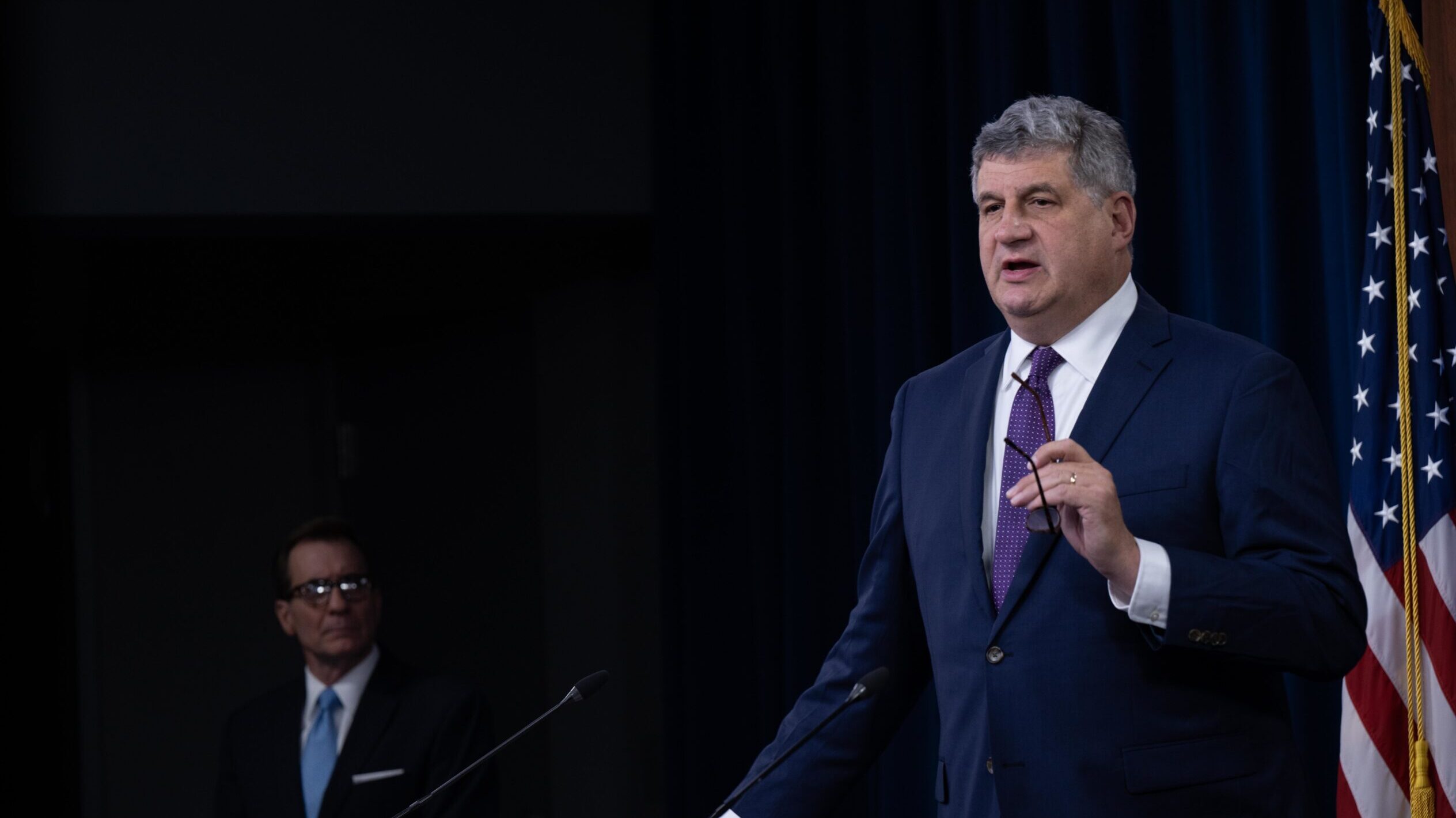
Pentagon Press Secretary John Kirby and Under Secretary of Defense for Acquisition and Sustainment Dr. William A. LaPlante hold a press brief at the Pentagon, May 6, 2022. (DoD Photo by U.S. Navy Petty Officer 2nd Class James K. Lee)
WASHINGTON — As defense companies grapple with soaring inflation, the Pentagon is working on new guidance that would give contracting officers more flexibility to make adjustments, especially on firm, fixed-price contracts with suppliers, the Defense Department’s top acquisition official said.
The Pentagon hopes to update guidance for contracting officers within “the next week” after the new language is vetted by senior acquisition officials, Bill LaPlante, undersecretary of defense for acquisition and sustainment, said during the Defense News conference on Sept. 7.
“I’m worried about the small supplier who signed a firm, fixed-price contract. It’s got 50 employees, and all of a sudden is dealing with 11 percent inflation,” he said. “How do we deal with that company? We don’t want those companies to go out of business. That’s what we’re working on right now.”
While the government can use “economic price adjustments” to respond to inflationary pressures on contracts, not all firm, fixed-price contracts have an economic adjustment clause, LaPlante said.
“So what we’ve been doing since then, is looking at several things. One, can we loosen or broaden the definition of what an EPA clause can be used for, including for firm fixed price [contracts]? And can we use what’s called ‘extraordinary circumstances?’ … Can we use that definition to make [companies] whole? And then the second is, what are novel legislative proposals and ideas to address this?”
RELATED: NDIA head David Norquist on Pentagon communications and handling inflation
LaPlante said he is “convinced” that companies are being harmed by the effects of inflation, but that the Pentagon needs data from industry to prove to Congress that suppliers are in danger of going out of business or no longer working with the government.
The Pentagon will also need monetary relief from Congress to fund additional economic price adjustments, he said. “We could put out the most beautiful, eloquent Shakespearean guidance on inflation, but if we don’t get the money? It doesn’t matter.”
Last month, Air Force acquisition executive Andrew Hunter told reporters that while the Air Force had not yet begun to see “huge disruptions” to existing programs, defense companies are making bids on new contracts that are “significantly higher” than expected due to rising inflation.
Like LaPlante, he said it was key for the government to understand the minutia of what specifically is driving cost increases.
The government needs to “really get into the details to see what’s behind those increases,” he said. “We need to understand: Have you actually received quotes from your supply chain that are substantially higher? Can you show us that you had to pay significantly higher wage rates? Or you can’t get the people in one grade, so you’ve had to backfill and get people who are maybe a higher level, or two people at a lower level to fill the spot for that you?”
Senate passes $95 billion foreign aid bill, as DoD eyes next Ukraine weapons package
Additional aid for Ukraine could be made available “within days” said Pentagon Press Secretary Maj. Gen. Pat Ryder earlier today.

























